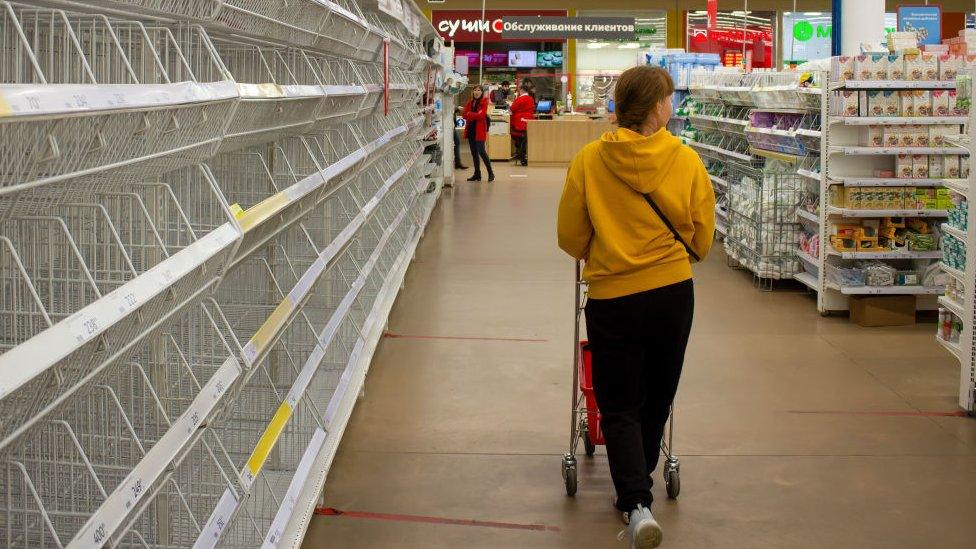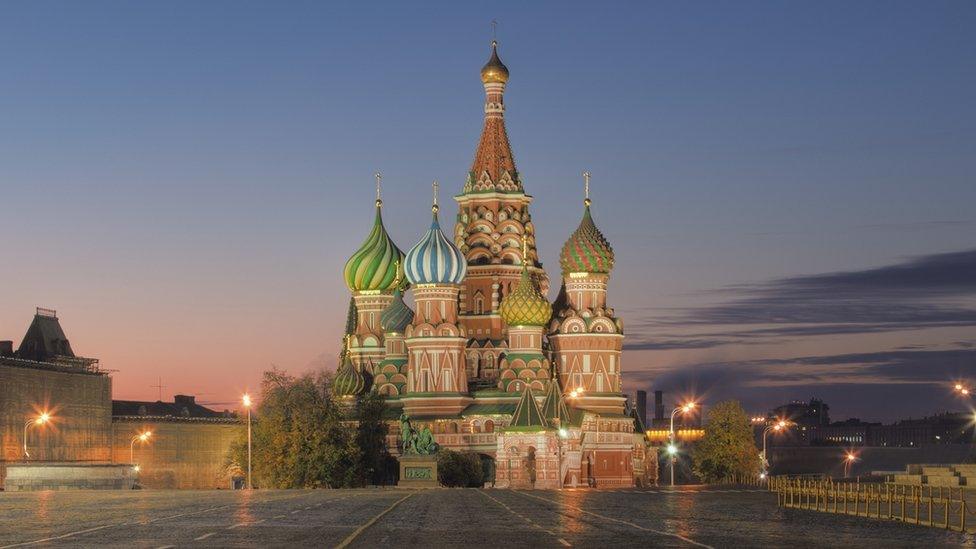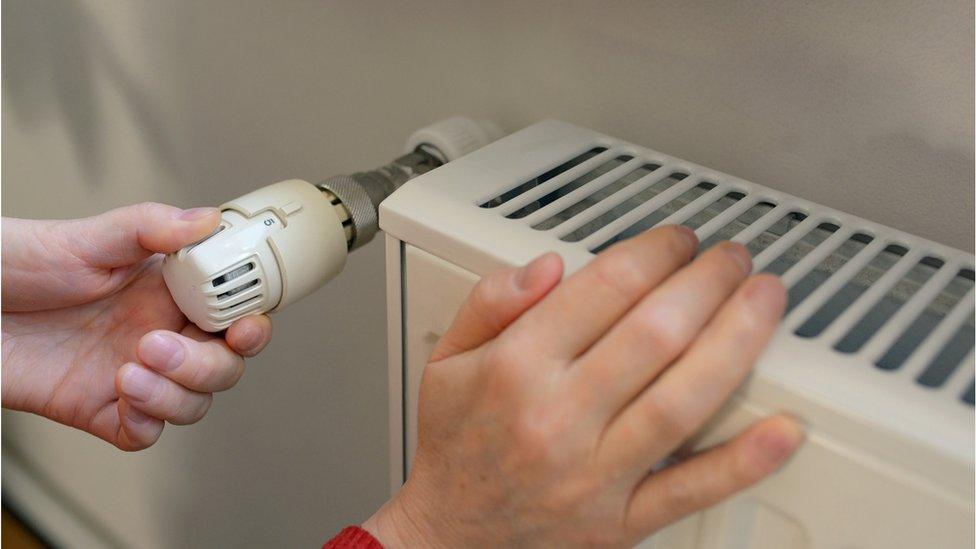Ukraine conflict: Russia to allow unauthorised imports from West
- Published

Russia's prime minister said he wanted to saturate the market to create fast access to essential goods
Russia is allowing imports without a trademark owner's permission, in reaction to sanctions that have halted an array of Western products.
Prime Minister Mikhail Mishustin approved "parallel imports" as part of a fourth package of support for small and medium-sized businesses.
The West's response to Russia's war has prompted a surge in inflation.
The prime minister said until now goods could not be sold in Russia without the trademark owner's authorisation.
The aim of letting retailers import products without the companies' permission, he explained, was to saturate the market so that people had fast access to necessary goods, guaranteeing supply despite the "unfriendly actions of foreign politicians".
Lists of products were to be co-ordinated with the ministry of industry and trade, Mr Mishustin said in a televised address. Russian reports indicate they will focus on consumer products where prices have risen.
Annual inflation has soared this week to 15.66%. Sugar in particular has been hit by price rises and shortages and Russia's anti-monopoly service said it was investigating the country's five biggest producers.
In a bid to prop up the currency, Russia announced last week that "unfriendly countries" would have to pay for their natural gas in roubles from Thursday.
The EU has rejected the idea and Germany said Chancellor Olaf Scholz had been told that Europe would be able to continue paying in euros to a Russian bank not under sanctions, which would then convert the money into roubles.
Hundreds of global brands such as Apple and H&M have also either pulled out of the Russian market or halted sales since the invasion of Ukraine began on 24 February.
Several companies have continued to provide basic nutrition and hygiene items. Sports shop Decathlon said this week it was only closing its shops because of supply chain problems, while Nestle has suspended the sale of the "vast majority of volume and sales" in Russia.
In a separate development, Russian state institutions have been barred from buying foreign software from Thursday for so-called critical information infrastructure, without prior government consent.
The decree covers telecom and information systems used by government agencies, as well as companies in defence, healthcare, transport, energy and finance.

War in Ukraine: More coverage
SANCTIONS: What sanctions are being imposed on Russia?
SHOOTING: Does video show Ukrainian war crime?
READ MORE: Full coverage of the crisis, external

Related topics
- Published23 February 2024

- Published30 March 2022
